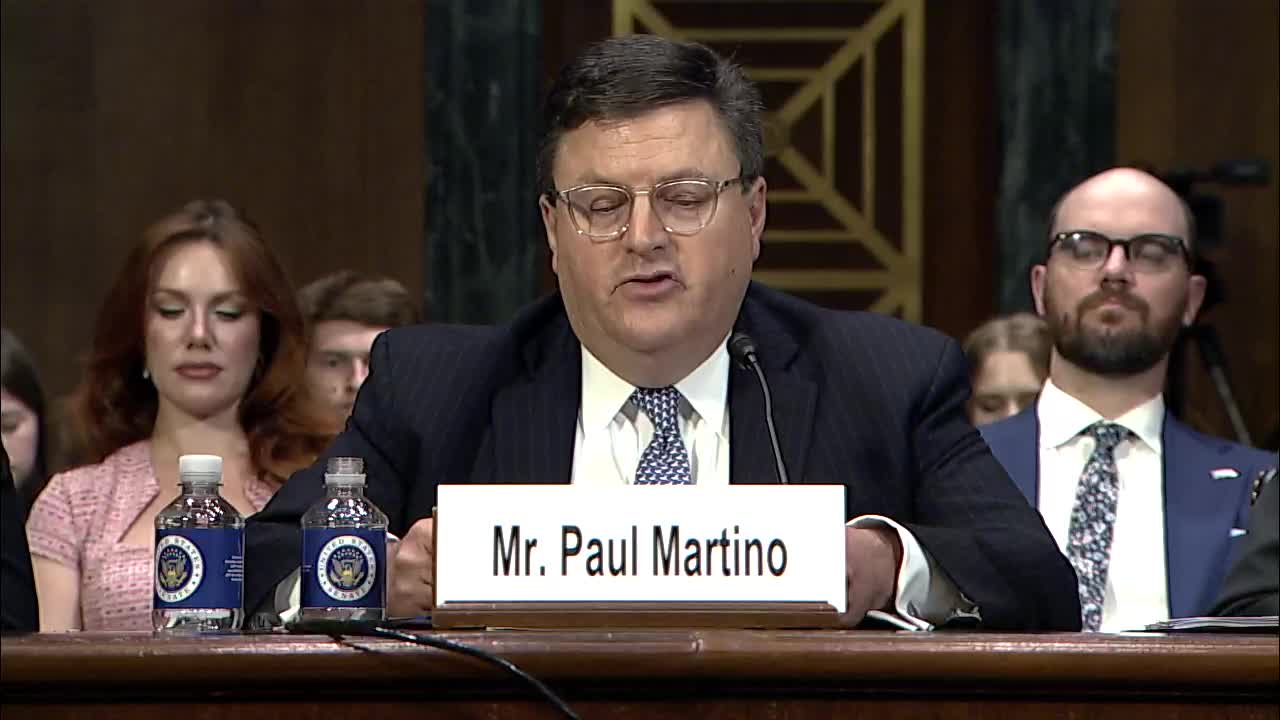Senate Subcommittee Explores Federal Privacy Law to Safeguard Americans' Online Data
July 30, 2025 | Judiciary: Senate Committee, Standing Committees - House & Senate, Congressional Hearings Compilation
This article was created by AI summarizing key points discussed. AI makes mistakes, so for full details and context, please refer to the video of the full meeting. Please report any errors so we can fix them. Report an error »

In a pivotal meeting held by the U.S. Senate Committee on the Judiciary, experts and advocates gathered to discuss the urgent need for a comprehensive federal privacy law to safeguard Americans' online data. The session, titled "Protecting the Virtual You," highlighted the growing concerns over privacy rights as technology continues to evolve at a rapid pace.
Alan Butler, executive director of the Electronic Privacy Information Center (EPIC), emphasized that the current state of privacy protections is inadequate. He pointed out that self-regulation has failed, leading to alarming levels of surveillance and data misuse. "The status quo is untenable," Butler stated, urging lawmakers to take decisive action to protect citizens from invasive data practices that threaten their autonomy and freedom.
The discussion underscored a critical point: Americans expect their privacy to be uniformly protected, regardless of where they live or conduct business. Advocates argued that a preemptive federal privacy law would not only benefit consumers but also provide businesses with the certainty they need to operate responsibly. This law would establish equivalent standards for all businesses handling consumer data, ensuring that privacy obligations are consistent across various sectors.
Sam Levine, a senior fellow at the Berkeley Center for Consumer Law and Economic Justice, expanded on the implications of weak privacy protections. He warned that unchecked data collection could lead to economic disparities, where companies engage in "personalized price gouging" based on consumer behavior. Levine also highlighted the risks to democratic freedoms, citing instances where data brokers profiled Americans based on their political and religious beliefs.
The meeting revealed a bipartisan consensus on the necessity of robust privacy standards. Lawmakers and experts alike recognized that the current patchwork of state laws is insufficient to address the complexities of the digital landscape. As states have begun to enact their own privacy laws, the need for a strong federal framework has become increasingly clear.
The call for action is urgent. With the rise of artificial intelligence and the pervasive influence of social media, the potential for harm to children and teens is significant. Experts warned that without strong privacy laws, the cycle of exploitation and addiction could worsen, impacting the mental health of the next generation.
As the committee prepares to consider various proposals for a federal privacy law, the discussions from this meeting serve as a crucial reminder of the stakes involved. The future of Americans' online privacy hangs in the balance, and the time for decisive legislative action is now.
Alan Butler, executive director of the Electronic Privacy Information Center (EPIC), emphasized that the current state of privacy protections is inadequate. He pointed out that self-regulation has failed, leading to alarming levels of surveillance and data misuse. "The status quo is untenable," Butler stated, urging lawmakers to take decisive action to protect citizens from invasive data practices that threaten their autonomy and freedom.
The discussion underscored a critical point: Americans expect their privacy to be uniformly protected, regardless of where they live or conduct business. Advocates argued that a preemptive federal privacy law would not only benefit consumers but also provide businesses with the certainty they need to operate responsibly. This law would establish equivalent standards for all businesses handling consumer data, ensuring that privacy obligations are consistent across various sectors.
Sam Levine, a senior fellow at the Berkeley Center for Consumer Law and Economic Justice, expanded on the implications of weak privacy protections. He warned that unchecked data collection could lead to economic disparities, where companies engage in "personalized price gouging" based on consumer behavior. Levine also highlighted the risks to democratic freedoms, citing instances where data brokers profiled Americans based on their political and religious beliefs.
The meeting revealed a bipartisan consensus on the necessity of robust privacy standards. Lawmakers and experts alike recognized that the current patchwork of state laws is insufficient to address the complexities of the digital landscape. As states have begun to enact their own privacy laws, the need for a strong federal framework has become increasingly clear.
The call for action is urgent. With the rise of artificial intelligence and the pervasive influence of social media, the potential for harm to children and teens is significant. Experts warned that without strong privacy laws, the cycle of exploitation and addiction could worsen, impacting the mental health of the next generation.
As the committee prepares to consider various proposals for a federal privacy law, the discussions from this meeting serve as a crucial reminder of the stakes involved. The future of Americans' online privacy hangs in the balance, and the time for decisive legislative action is now.
View full meeting
This article is based on a recent meeting—watch the full video and explore the complete transcript for deeper insights into the discussion.
View full meeting